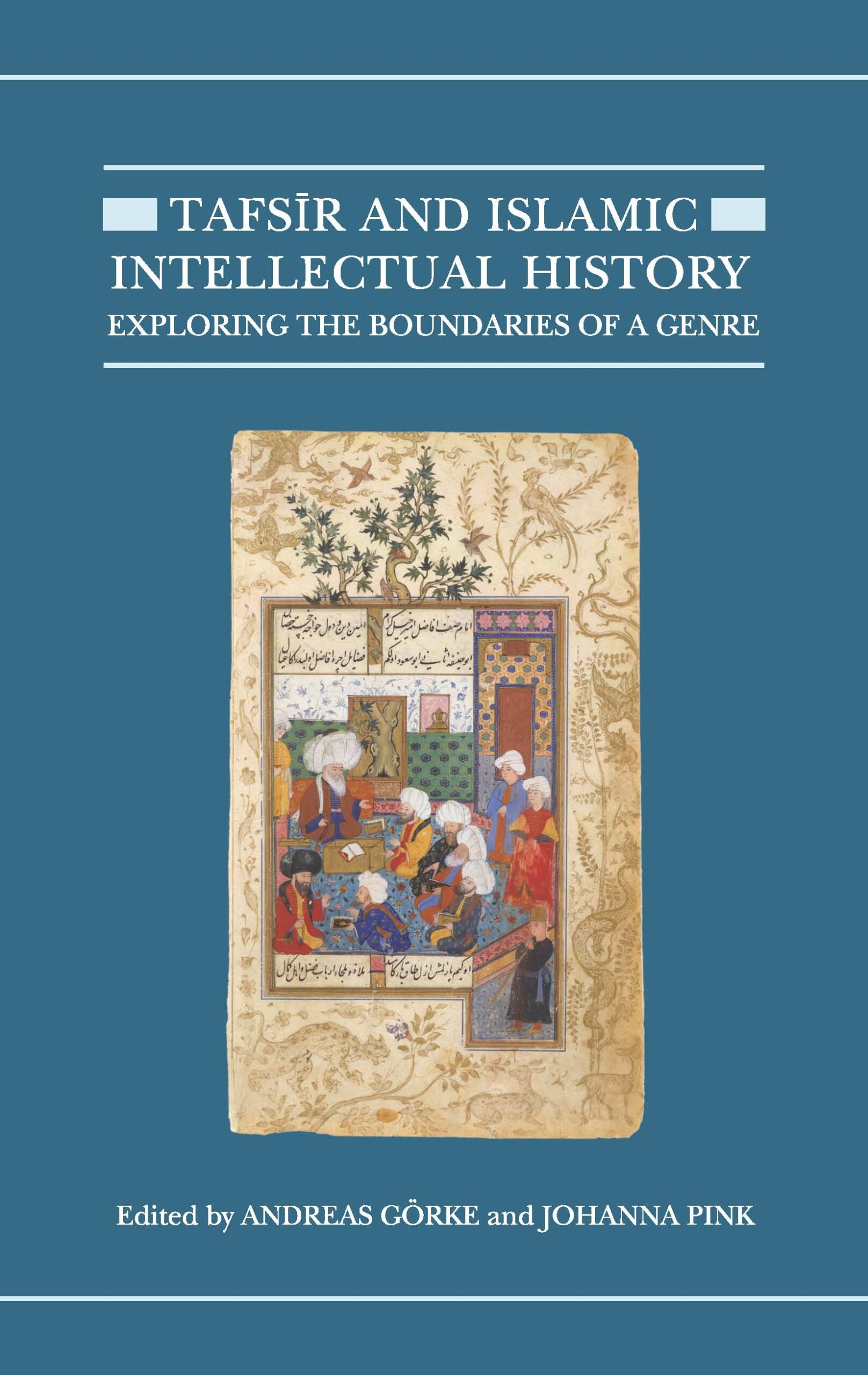How and when did Qur’anic exegesis (tafsīr) emerge as a literary genre of its own? To what extent was it influenced by other disciplines, such as law, theology or philosophy? How did different political or theological agendas shape works of tafsīr, and in what ways did the genre develop over time and in different regions? These are some of the major questions which this book seeks to address.
This book constitutes the first comprehensive attempt at describing the genre of Qur’anic exegesis in its broader intellectual context. Its aim is to provide a framework for understanding the boundaries of tafsīr and its interaction with other disciplines of learning, as well as the subgenres and internal divisions within the genre. It discusses the emergence of the genre in the beginnings of Islamic history and the changes and potential ruptures it has experienced in later times, the role of hadith, law, language, philosophy, theology and political ideology for the interpretive process, the regional dimension, the influx of modernist ideas and the process of writing tafsīr in languages other than Arabic.
Among the fifteen authors who have contributed to the volume are leading scholars in the field as well as young researchers, which makes for a unique and fresh perspective on a field that has long been reduced to its instrumental value for understanding the Qur’anMuslims believe that the Holy Qur’an contains divine revelations to the Prophet Muhammed received in Mecca and Medina over a period of 23 years in the early 7th century CE. More. Covering the time from the formation of Qur’anic exegesis until the present, it is a valuable resource for advanced students and scholars in the field.
Note on Contributors
Note on Transliteration, Conventions and Abbreviations
Acknowledgements
Introduction, Johanna Pink and Andreas Görke
I. The Formation of Boundaries: Early Evolution of the Genre
1. Eve in the Formative Period of Islamic Exegesis: Intertextual Boundaries and Hermeneutic Demarcations, Catherine Bronson
2. Mujāhid’s Exegesis: Beginnings, Ways of Transmission and Development of a Meccan Exegetical Tradition in its Human, Spiritual and Theological Environment, Claude Gilliot
3. The Qur’anic Commentary of Muqātil b. Sulaymān and the Evolution of Early Tafsīr Literature, Nicolai Sinai
II. Disciplinary Boundaries and their Permeation: The Place of Tafsīr in Islamic Scholarship
4. Interrelations and Boundaries between Tafsīr and Hadith Literature: The Exegesis of Mālik b. Anas’ Muwaṭṭaʾ and Classical Qur’anic Commentaries, Roberto Tottoli
5. ShāfiʿīFollowers of one of the legal schools of Islam founded by Abū ʿAbd Allāh Muḥammad al-Shāfiʿī (d. 974 CE). Hermeneutics and Qur’anic Interpretation in al-Jāḥiẓ’s Kitāb al-ʿUthmāniyya, Ignacio Sánchez
6. Tafsīr between Law and Exegesis: The Case of Q. 49:9 (the Rebellion Verse/āyat al-baghy), Rebecca Sauer
III. Boundaries of Dogma and Theology: The Expression of Ideas through Tafsīr
7. al-Jurjānī: Tafsīr Theory between Linguistics and Theological Dogma, Nejmeddine Khalfallah
8. Interpretation and Reasoning in al-Qāḍī ʿAbd al-Jabbār’s Qur’anic Hermeneutics, Abdessamad Belhaj
9. Tafsīr and The Mythology of Islamic Fundamentalism, Neguin Yavari
IV. Reassessing Conventional Boundaries: Chronology, Geography, Media and Authorship
10. Where Does Modernity Begin? Muḥammad al-Shawkānī and the Tradition of Tafsīr, Johanna Pink
11. Redefining the Borders of Tafsīr: Oral Exegesis, Lay Exegesis and Regional Particularities, Andreas Görke
12. Tafsīr and the Intellectual History of Islam in West Africa, Andrea Brigagli
V. An Expansion of Boundaries: The Tafsīr Tradition in Modern Times
13. Two Twentieth-century Exegetes between Traditional Scholarship and Modern Thought: Gender Concepts in the Tafsīrs of Muḥammad Ḥusayn Ṭabāṭabāʾī and al-Ṭāhir b. ʿĀshūr, Kathrin Klausing
14. Yaşar Nuri Öztürk: A Contemporary Turkish Tafsīr Theorist, Kathrin Eith
15. The Contemporary Translation of Classical Works Of Tafsīr, Andrew Rippin
Bibliography
Index of Qur’anic Citations
General Index
[T]his edited volume is very valuable. … it contains important contributions of a high standard that pave the way for future research in the field. Moreover, it poses the right questions on the nature of the genre and the analytical tools needed to study it.
– Pieter Coppens, Journal of Qur’anic Studies
Andreas Görke is Lecturer in Islamic Studies at the University of Edinburgh. He earned his PhD from the University of Hamburg in 2001 and his Habilitation from the University of Basel in 2010. His publications include the monographs Das Kitāb al-Amwāl des Abū ʿUbaid al-Qāsim b. Sallām, Entstehung und Überlieferung eines frühislamischen Rechtswerkes (Princeton, 2003) and, co-authored with Gregor Schoeler, Die ältesten Berichte über das Leben Muḥammads: Das Korpus ʿUrwa ibn az-Zubair (Princeton, 2008).
Johanna Pink is Professor of Islamic and Middle Eastern Studies at the University of Freiburg, Germany. She obtained her doctorate from the University of Bonn in 2002. Her publications include the monograph Sunnitischer Tafsir in der modernen islamischen Welt: Akademische Traditionen, Popularisierung und nationalstaatliche Interessen (Leiden, 2011).

